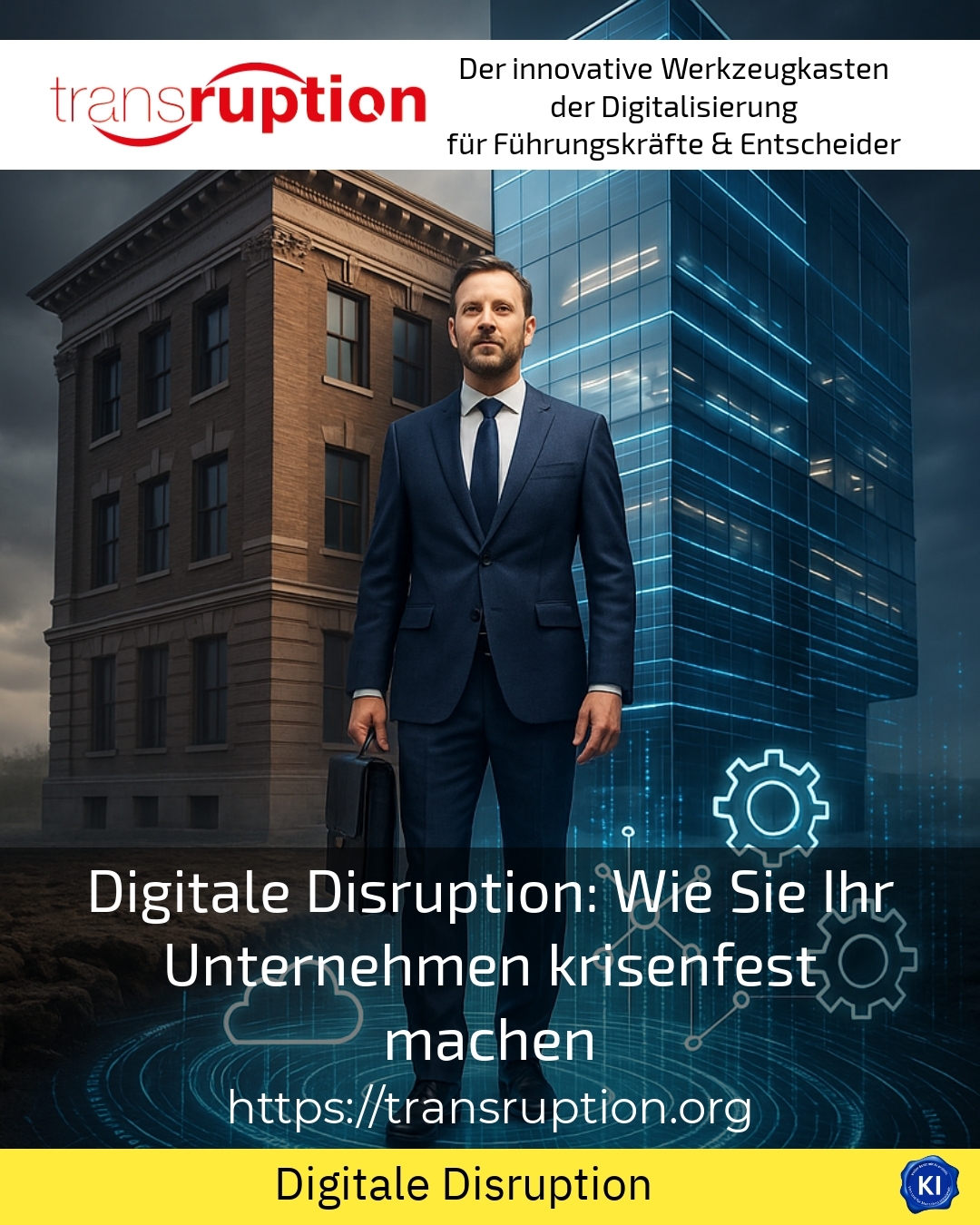In a world that is constantly characterised by digital disruption, it is crucial for companies to adapt to these changes. The term digital disruption describes the radical transformation of markets and business models through digitalisation. This transformation leads to the emergence of new digital business models and changes the way customers interact with products and services[1][2].
What is digital disruption?
Digital disruption goes beyond simple digital transformation. While digital transformation describes a continuous process of change, digital disruption means the fundamental reorganisation of company processes and models. This transformation requires companies to adapt flexibly and utilise new digital technologies in order to remain competitive[1][2].
Examples of successful action in digital disruption
A well-known example of successful digital disruption is the company Airbnb. Airbnb has revolutionised the traditional accommodation industry by providing a platform for private accommodation. This innovative achievement has challenged established hotel chains and opened up new markets[2]. Another example is Netflix, which has marginalised traditional television providers and video stores through its streaming services[2].
Adaptation to changes
In order to successfully face digital disruption, companies should actively respond to digital innovations. This can be done by introducing new technologies such as big data and machine learning. These technologies enable companies to optimise their processes and develop new business models that are better tailored to changing customer needs[4].
Digital disruption and innovation
Digital disruption requires companies to adapt to disruptive innovations. This means rethinking existing business models and developing new strategies based on customer needs. One example of this is the sharing economy, which has changed the traditional taxi and transport market through platforms such as Uber[5].
BEST PRACTICE at the customer (name hidden due to NDA contract): A company in the logistics sector has optimised its supply chains by introducing IoT (Internet of Things) technologies. These technologies make it possible to monitor the position and condition of shipments in real time, which has led to a significant increase in efficiency and customer satisfaction.
Support through coaching
Companies facing digital disruption benefit from the support of experts. Coaching services can support companies in the introduction of new technologies and facilitate strategic decisions. This support enables companies to adapt to the challenges of digital disruption at an early stage and strengthen their competitiveness[7].
My analysis
Digital disruption is a phenomenon that is increasingly challenging companies. The introduction of new digital technologies and business models is fundamentally changing existing markets. Companies that adapt to these changes at an early stage have the opportunity to strengthen their competitive position and tap into new markets. Dealing with digital disruption is therefore essential in order to be successful in the long term.
Further links from the text above:
Innolytics Digital Disruption
IT-P GmbH Digital Disruption
OMR Digital Disruption
Maximum Digital: Digital disruption and megatrends
Digital disruption by Dr Jens-Uwe Meyer
For more information and if you have any questions, please contact Contact us or read more blog posts on the topic TRANSRUPTION here.
















